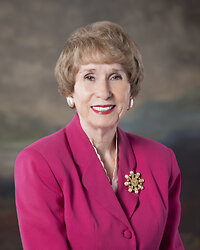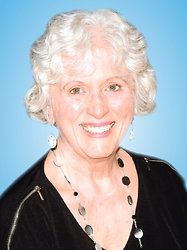I am fascinated by the saying, "Our suffering and hardships can become our bread."
As I ponder this statement, I think of a friend who, as a teen, lost his father. It was one of the most difficult times for him, but he said what helped him the most was what the funeral director did for him and his family. My friend found the funeral director a caring person who guided him through his loss. As a result, my friend decided that he wanted to be a funeral director so that he could help other people walk through their grief. He turned this tragic event into his bread and has been helping people in our area for years.
We all probably know people who have found their callings through their suffering and hardships and made that calling their bread. Maybe some of us have also. Tragic events can move us to compassion and either turn our suffering into our bread or freeze us in our pain.

In Latin, "compassion" means
"co-suffering."
Compassion involves feeling
for another,
and it moves us to help others
with their suffering or loss.
"co-suffering."
Compassion involves feeling
for another,
and it moves us to help others
with their suffering or loss.
At our family reunion last summer, we played a game in which we picked a word and tried to define and illustrate it. One of the words presented was "compassion." Compassion literally means "to suffer together." Among emotion researchers, it is defined as the feeling that arises when one is confronted with another's suffering and feels motivated to relieve it. One meaning of the word really stood out to me: in Latin, "compassion" means "co-suffering." Compassion involves feeling for another, and it moves us to help them with their suffering or loss.
When I try to illustrate compassion, my wife Karen's grandmother comes to mind. I will never forget her funeral. People from all walks of life of all ages attended, and they all had a story of compassion concerning Karen's grandmother. The stories included how this woman took them in, stood up for them, courageously faced their abusers, and offered them safety. She was their safe place and had made a huge difference in their lives.
Grandmother's story was one of being deeply wounded as a child. Her wounds did not turn her into a bitter person but gave her eyes to see the wounds in others and to reach out to them with compassion. Her wounds became her bread.
Compassion is using our pain to help others. We cannot take their pain away, but we can share what has helped us work through our own pain. In truth, it is our pain that molds us, shapes us, refines us, and becomes a tool for growing and helping others. In our grief group, we do not take away the pain of others but use what our pain has taught us to help them work through their grief.
Dr. William E. Austin is a licensed psychotherapist and holds a Doctor of Divinity degree. He is a therapist with Tidewater Pastoral Counseling Services . He is well known for his warmth and sense of humor. His book, Creating Our Safe Place - Articles on Healthy Relationships, can be purchased through www.amazon.com.
Tidewater Pastoral Counseling: 623-2700
CURRENT COLUMNS
On The Front Porch With You 
Memories of Homeby Rob LauerChildren First 
Dandelion Timeby Becky AdamsRelationships 
When Your Security Blanket is in the Dryerby Dr. Bill AustinPublisher’s Point 
Time To Moveby Jean Loxley-Barnard
